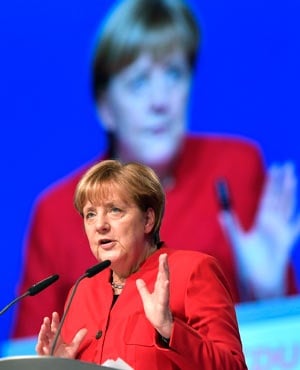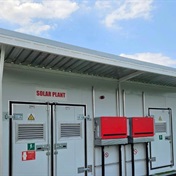
Berlin’s underground train service is loud, screechy and squeaky, which is in stark contrast to the quiet and smooth ground service on the city’s main roads.
The contradiction may well sum up the story of Germany ahead of Sunday’s crucial federal elections.
On the surface, everything looks rather neat and orderly – bicycles, cars, trains and pedestrians patiently wait for their turn to use the city’s well-maintained roads. But the rumbling continues beneath.
The architectural structures of historical buildings still remain, but with a little touch of modernity.
Evidently, a deliberate political project to heal the wounds of the country’s Hitler/Nazi violent past continues.
Kicking or screaming, pupils are expected to honour a mandatory visit to Parliament at the Reichstag, where they are imbued with German history so that they can proudly celebrate the democratic dispensation.
“Some come here and sleep or put on headphones and listen to music, but the point is that they are here,” says a tour guide.
In terms of politics, the peace, calm and serenity that the Germans have become used to – at least since World War 2 – is best embodied by the governing grand coalition led by Chancellor Angela Merkel’s Christian Democratic Union.
But the elections have brought with them a new story of the Alternative for Germany (AfD) party – described as loud, provocative, offensive, racist, fascist, populist, right wing, far right wing and any other undesirable label that critics could come up with.
They are unlikeable.
Many would have the party banned and censored, but that will be tantamount to rolling back many years of progress in German history, and it would be unconstitutional and undemocratic.
“Some say they are a part of a sinister plot by Russia to destabilise Germany. Legally, we know Russia is trying to do it, but, illegally, we do not know much,” says a highly placed German government insider.
A local blogger mentions Russia Today among those accused of peddling fake news to bolster the lunatics.
But, if anything, the German media is in sixes and sevens when it comes to covering the AfD’s electoral campaigns and explaining its policy positions.
Although the test, on a case-by-case basis, should be whether the AfD’s views violate the Constitution, that seems not to be the general approach.
Somehow, German journalists also appear to be emotionally invested in the AfD story, and base their views on that.
“At the end of the day, we have to be professional, but we also have to be careful not fall into their trap,” says a news boss.
It also does not help that the AfD sees the media as part of the establishment it despises, so it shuns journalists too.
All would probably be well if the AfD phenomenon was happening somewhere in the periphery, where it could be ignored.
The tricky part is that the AfD has become the fastest-growing party in Germany, stealing support from the dominant parties and suffocating other smaller parties.
And it is doing so on the back of reopening the wounds that many Germans would rather leave behind.
The party is riding the wave of class and social inequalities in Germany and, in so doing, it has managed to agitate even those citizens who had given up voting because they were despondent.
A local observer says the AfD was initially born out of anti-European Union (EU) sentiments at the height of the European financial crisis. It’s founder, an economist by profession, popularised the narrative that Merkel sold Germany to the EU. They want to “claim Germany back”.
But the party has since been hijacked from the founder, who tried to resuscitate his agenda by starting another political formation – but no one really seems to care.
After the financial crisis came the refugee crisis in Europe and Merkel, according to AfD, is the symbol of everything that is wrong with Europe’s handling of the unprecedented refugee inflow.
“But they do not really hate refugees, they just hate the system,” says a journalist at the national broadcaster Deutsche Wille, who paints a picture of the deep rural parts of Germany that are neglected – no jobs, potholed roads, no services and so on.
The biggest fear among the AfD’s critics is the role, if any, that the party will play after the elections. So far, it looks guaranteed to scoop a few seats in Parliament, having narrowly missed out on the 5% threshold to make into the Bundestag in 2013.
Some think that will be a blessing in disguise because its lousy inputs during debates on matters of national importance will be exposed and eventually speed up the party’s demise, like many before it.
But that is not all. There is also a major concern that the Social Democratic Party (SPD), the second-biggest political party in Germany, may no longer have the appetite to form a coalition with Merkel because she gets all the credit for its hard work.
In any case, it is expected that Merkel – a very popular leader – will serve her last term and leave, so there is an opportunity for the SPD to bide its time and regroup with a view to challenge for the majority position after Merkel is gone.
Some secretly hope that the seduction of power will be too strong for the SPD to move in that direction.
But, in that event, the AfD could become the kingmaker.
And it is unlikely to form a coalition with Merkel, or anyone for that matter, and that would throw Germany into deep chaos.




 Publications
Publications
 Partners
Partners








